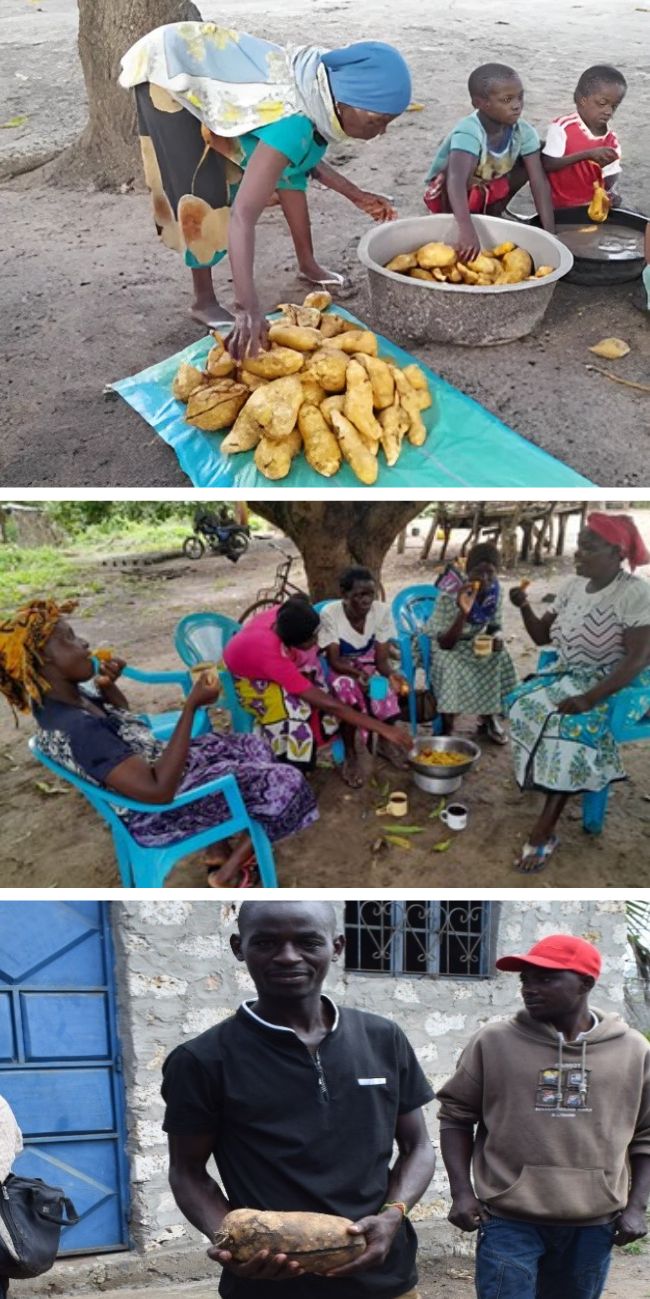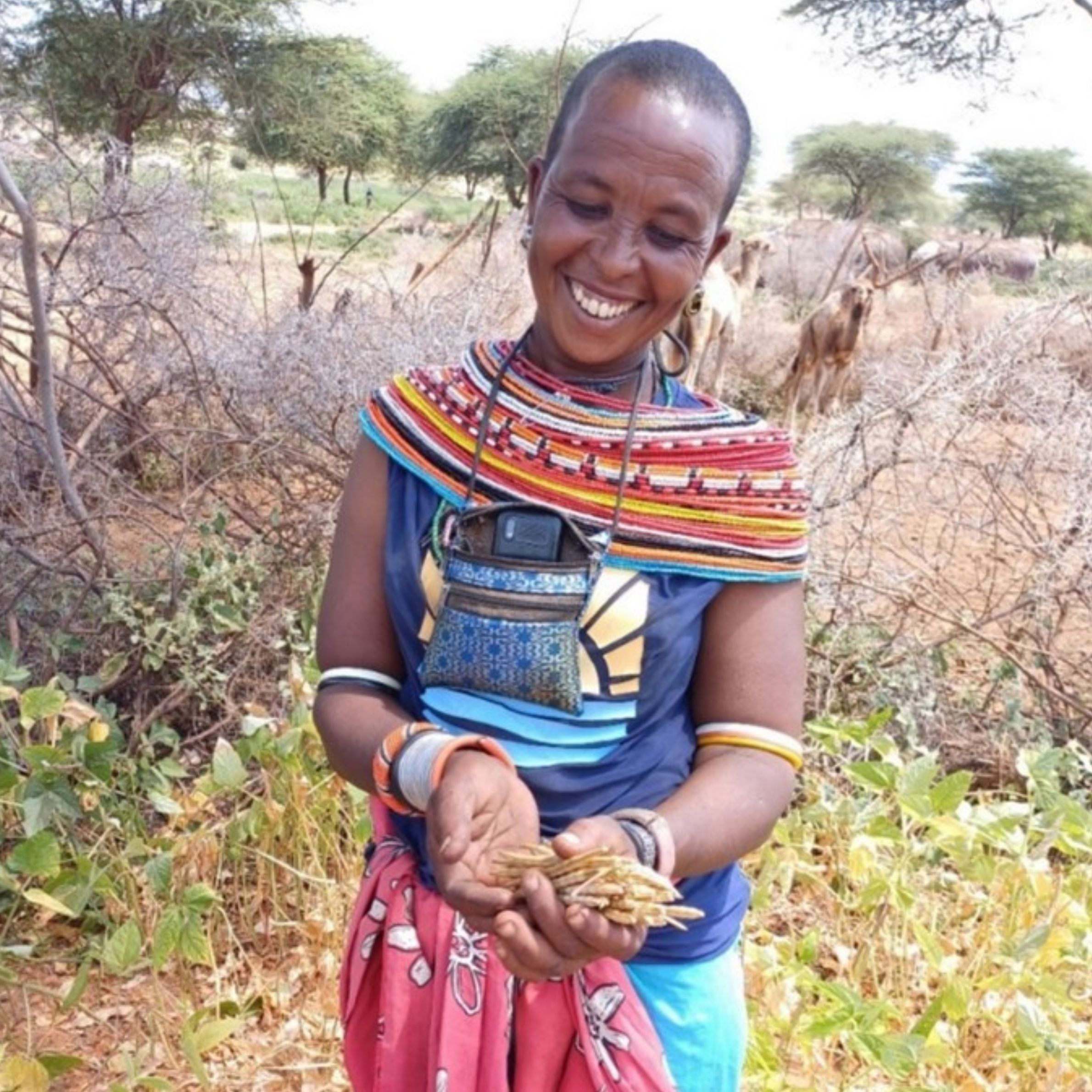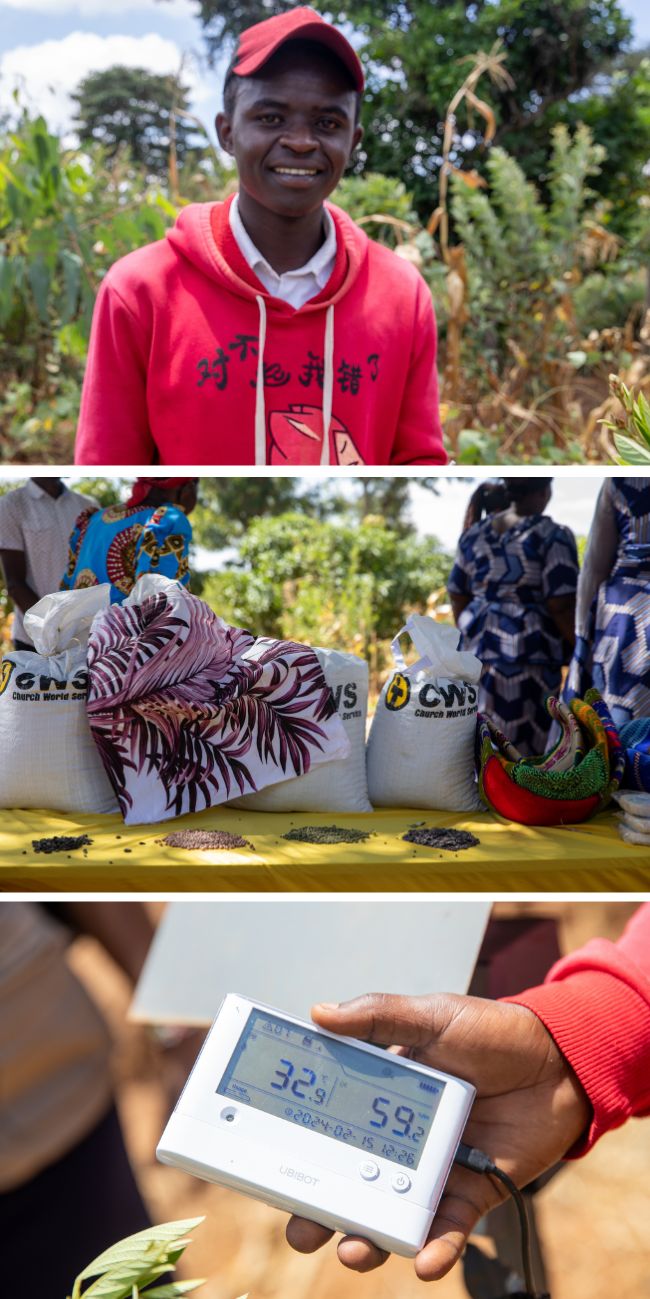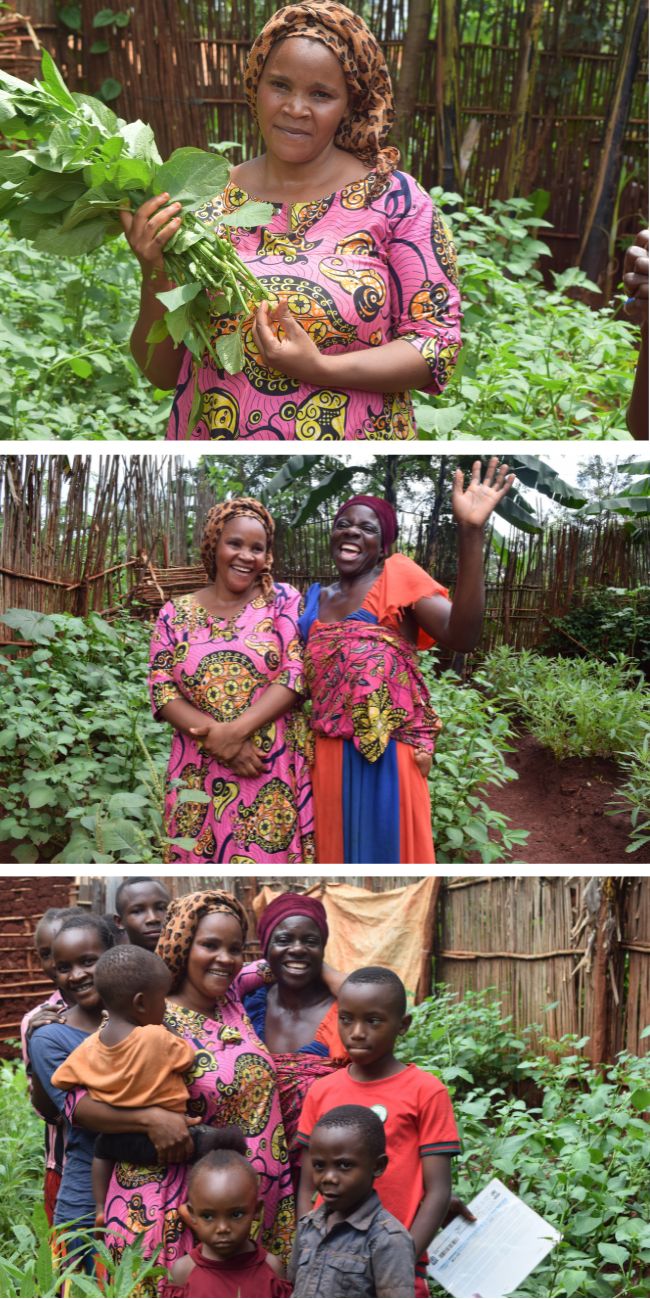“I remember that day, as if it was a dream… like a drama…” Margaret Kitheka states, as we begin a conversation about her unexpected ascension to the leadership position of her self-help group, where she now sits as the group secretary. The following text is Margaret’s retelling of her experience becoming a leader in this program: With the CWS project …
Stories of Change

Top: A family preparing sweet potatoes for market ; Middle: Members of the Gatundu self-help group enjoy some sweet potatoes; Bottom: Charles showcases the size of sweet potatoes harvested from his farm
A Sweet Investment Brings Success
If you invest in one potato, can you double that investment? How about triple it? One of CWS’ program participants in Tanzania, Charles Dzombo, has the answer to this question.
Charles is a program participant in CWS’ sweet potato project and was excited to share his story after receiving support from the food security program in 2023. He is a smallholder farmer, farming a range of plants like green grains, maize and mangoes, which he sells from his farm to provide for his family of seven. The returns Charles received from his farming are meager and can barely meet the ever-growing needs of his family, let alone himself. As the sole provider for his household, he uses the funds to purchase food, sustain household needs and pay school fees for his children and some extended relatives. After being informed of the CWS program supporting farmer groups to plant sweet potatoes, he was eager to see what the future would look like.
Since he had never farmed sweet potatoes in his life, Charles was an active learner during the crop production classes and constantly communicated with agricultural extension officers and CWS staff during the planting season. Excitedly, Charles shared photos of the growing vines as soon as they flourished, and when the rains threatened to flood the farm in the first month, he still shared his fears and hopes with CWS staff and sought advice. Subsequently, Charles was selected as a lead farmer for his location and self-help group. CWS invited him to additional training to support his fellow members with more knowledge and skills on sweet potato production and help scout for markets to sell their crops.
Charles and other members of the self-help group were encouraged by the fact that sweet potato farming required lower financial input than other plants yet promised better returns. With this, additional farmers requested that their neighbors join and assist them, growing the number of participants from 16 to 25. Charles recounted how impressed he was that the maturity of the vines took two and half months to grow, a much shorter time than the four months that he expected. The bountiful harvest fed his family and left Charles stress-free. “Ever since I started harvesting my potatoes, my children have always had something for breakfast which satisfies them, and I am even happier I now [can] provide them more nutritious foods. When they go to school, they sometimes carry potatoes for lunch, or we use funds from the sale to prepare something else.’’
In addition, Charles and fellow self-help group members have established themselves as suppliers of sweet potatoes to their neighbors, including the teachers in the school where his children study, besides becoming core suppliers to main markets within their neighborhood. He stated that he believes their farming has improved the overall cost of sweet potatoes in the market, as both sellers and buyers benefit from fair prices. The group’s receptiveness to sweet potato farming led the group to invite an extension officer to train them on how to make dried and fried sweet potato crisps, use its flour to make bread and other ways to drive their harvest further.
Making a profit three times his investment, Charles was able to pay fees, have extra money to meet his household needs, maintain a stable food supply and even purchase a goat to diversify his investments. He thanks CWS for empowering them with the project, constantly working with them, and diversifying his communities’ resources. He finished by saying, “Now that I have tasted the goodness of planting sweet potatoes, I am now going to make it a priority. As we are speaking, I have prepared two additional sections of land to replant to ensure I can have a constant supply of sweet potatoes.’’
While his sweet potatoes have brought him success, the greatest success is found in Charles’ commitment to working with his neighbors to make their life a bit sweeter.
We would like to thank our partners, the Canadian Foodgrains Bank and the Primate’s World Relief and Development Fund, as well as Global Affairs Canada for allowing this assistance to be possible. To learn more about this emergency response, click here. You can learn about our programs in Africa here.






